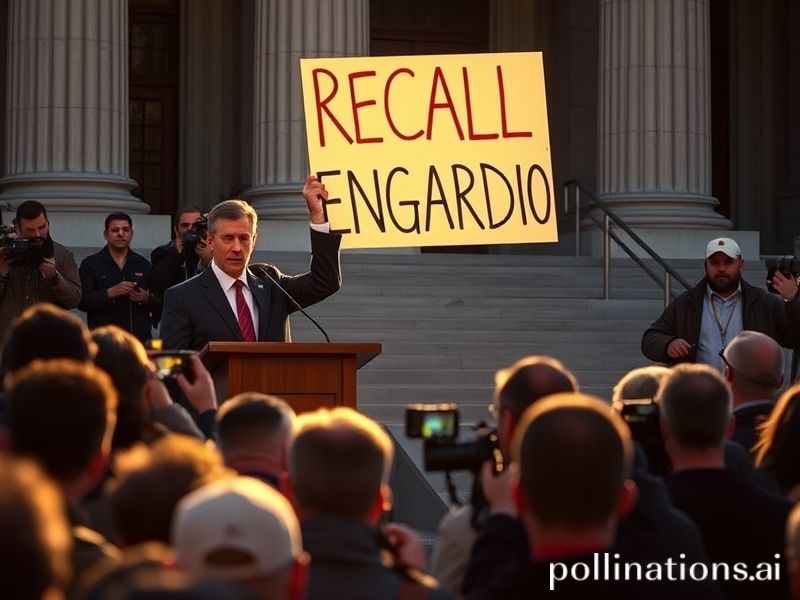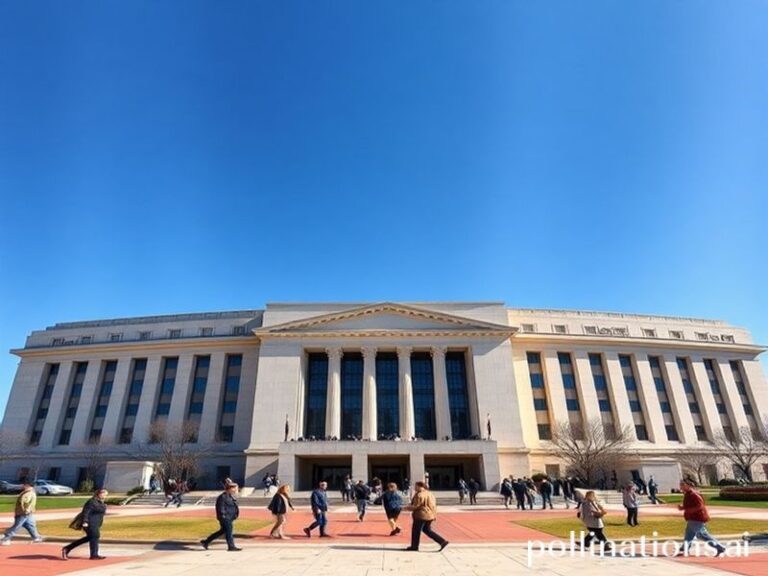From SF to the World: How Recalling One Supervisor Became Planetary Popcorn Politics
Joel Engardio Recall: How One San Francisco Supervisor’s Ouster Became a Global Popcorn Moment
By the time the first signature hit the recall clipboard in March, CNN International was already running a chyron that read “Tech Bro Democracy—Live!” From Lagos to Lisbon, viewers watched San Franciscans argue, yet again, about whether a moderate Democrat who dares to ticket RVs and clear tents is a fascist or merely a disappointed progressive. The rest of the planet, nursing its own political ulcers, reached for the popcorn.
San Francisco’s hyper-local recall of District 4 Supervisor Joel Engardio is, at first glance, a parochial tiff over bike lanes and fentanyl markets. But zoom out—say, from the altitude of a Singaporean drone or a Reykjavik Zoom screen—and it becomes an instructive parable about what happens when cities mutate into global brands. The city that exports both Twitter and dystopian sidewalk imagery now exports its political melodrama, too.
Engardio, a former journalist turned politician, ran on the audacious promise that the laws on the books might actually be enforced. This proved roughly as popular among certain constituents as suggesting the Queen had a side hustle. Homeless advocates, pro-car activists, and the ever-mutating alphabet soup of Bay Area factions united in the belief that he was either too soft or too hard on everything. Picture the United Nations Security Council, but everyone’s on artisanal cold brew and screaming in Slack.
Globally, the recall looks like a stress test for technocratic liberalism. Germany’s Der Spiegel framed it as “Californian Kompromisslosigkeit”—the inability to compromise, now an export commodity. Brazil’s Folha de S.Paulo compared it to Rio’s endless battles over favela policy, minus the samba. Meanwhile, Chinese social media users on Weibo cracked jokes about “running a city like a startup that keeps pivoting to bankruptcy.” The universal takeaway: if even wealthy, educated voters can’t decide whether sidewalks should be walkable, perhaps the problem isn’t ideology but the species.
The mechanics of the recall are themselves a Silicon Valley fever dream. Signature gatherers used QR codes printed on sustainably sourced hemp leaflets. Campaign donations arrived in crypto, stablecoins, and one suspiciously large transfer of Dogecoin traced to a bored Norwegian teenager. Election lawyers filed briefs from co-working spaces in Bali; the recall’s website auto-translated into 17 languages, including emoji. When a Finnish MEP tweeted “San Francisco trying to recall itself,” the tweet racked up 42K likes before anyone realized he meant it literally.
International capital is watching because San Francisco’s dysfunction carries a price tag far beyond the Bay. Pension funds in Toronto and sovereign wealth funds in Abu Dhabi own billions in local real estate now oscillating between “parking-lot chic” and “post-apocalyptic Ewok village.” If the city can’t govern itself, those glassy condos may soon trade at post-Soviet prices. A hedge-fund manager in Zurich summed it up on Bloomberg: “We priced in earthquakes. We didn’t price in policy whiplash.”
Even the methods of recall have gone viral. Activists in Seoul downloaded the San Francisco playbook and launched a petition to oust a district chief who dared trim a beloved ginkgo tree. In Barcelona, squatters cited “the Engardio precedent” when demanding due process before eviction. Like sourdough starters and stock-option culture, San Francisco has once again given the world something it never asked for but can’t stop consuming.
Will Engardio survive? Polls show a city so polarized it’s practically binary code: 49% want him gone, 49% want him canonized, and 2% thought “Joel Engardio” was a new oat-milk brand. The September vote will be decided by whichever faction can bribe more neighbors with free pizza and existential dread. International observers have marked their calendars; the smart money is on whichever side hires the Estonian meme-account mercenaries first.
In the end, the Engardio recall is less about one supervisor and more about a planet that has learned to fear its own reflection. Every city now has a tech district, a housing crisis, and a populace convinced the apocalypse is either imminent or already priced in. Watching San Francisco flail is comforting, in a schadenfreude-laced sort of way: if the city that built tomorrow can’t fix today, maybe the rest of us can stop pretending we know what we’re doing, too.
And that, dear reader, is the most honest export of all.







